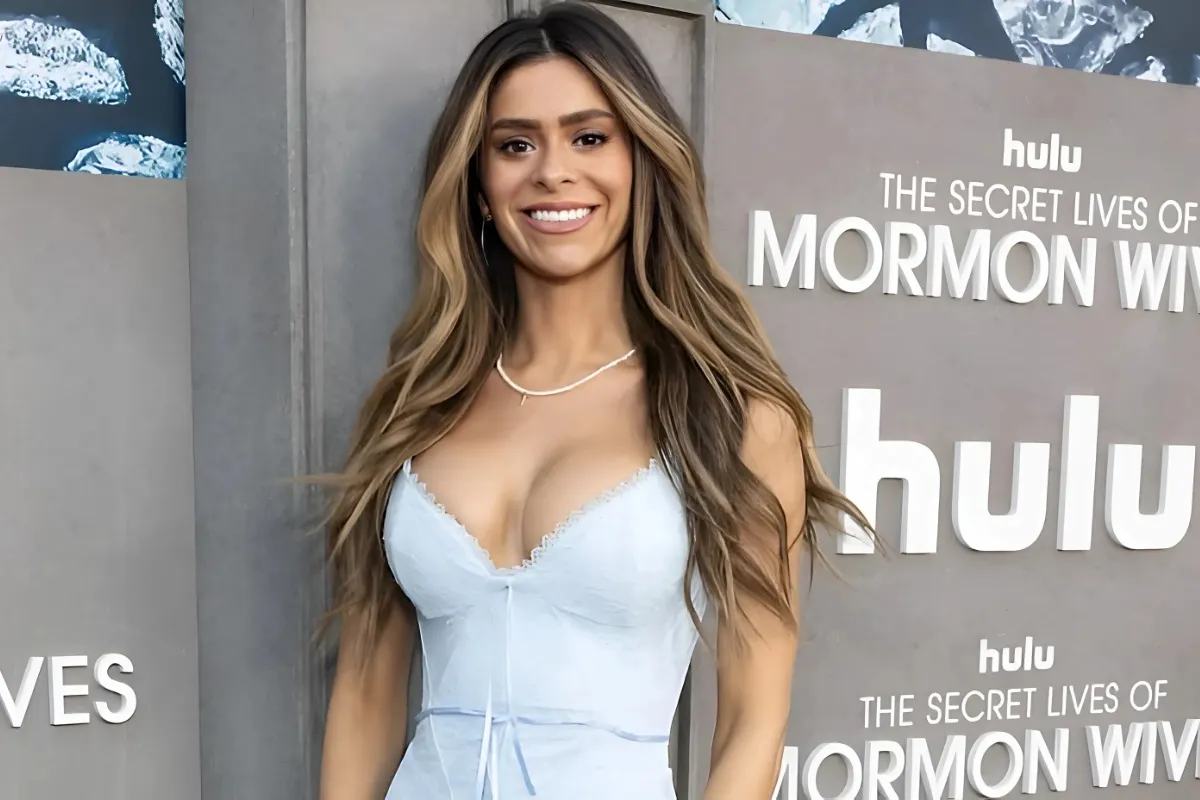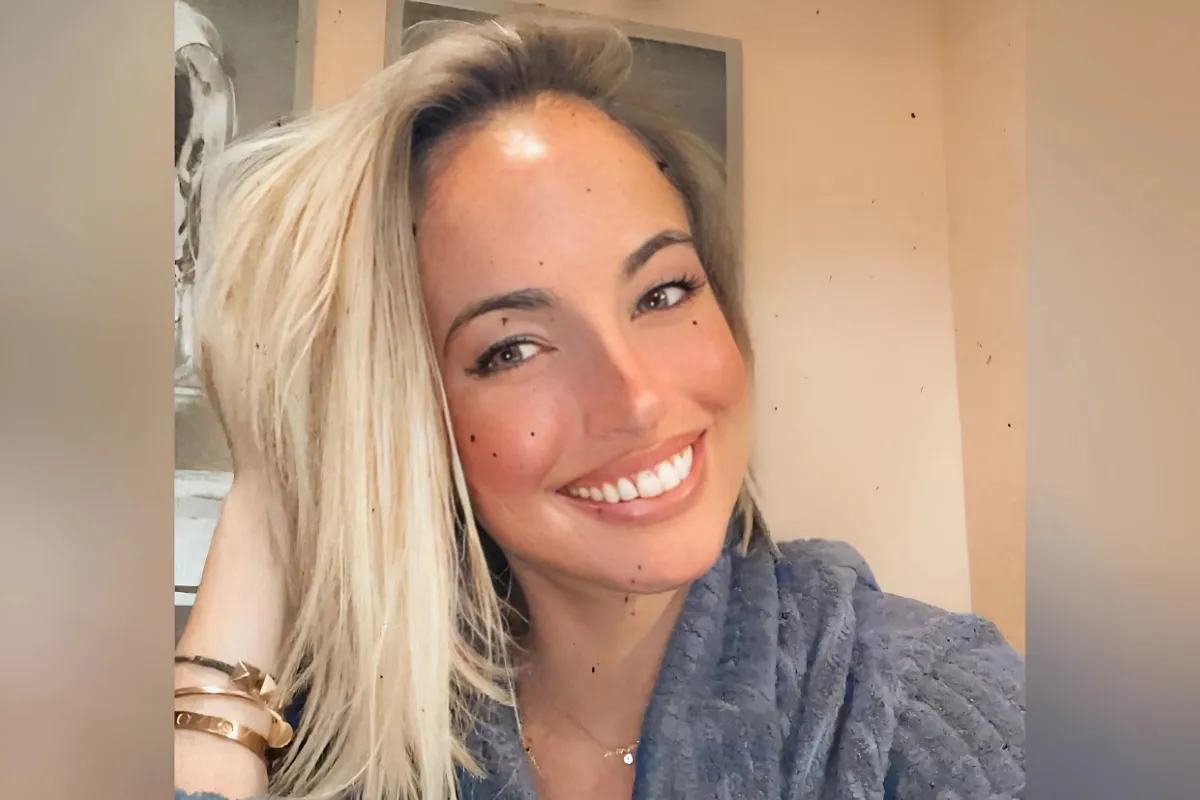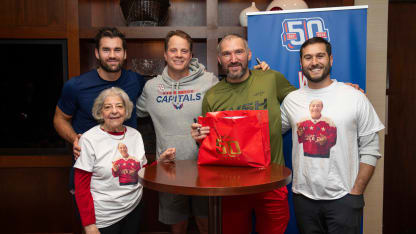
Several of the Capitals’ 36 original season-ticket account holders reflect on 50 years of supporting the team.
As the Capitals celebrate 50 years of franchise history, W Magazine speaks with original season-ticket account holders. Read additional memories in this year’s edition of W Magazine, available for purchase at washcaps.com/Wmagazine.
Ahead of the Washington Capitals’ 1974 arrival in Washington, D.C., Jim Fell would drive out to Landover, Md., to track the progress on the brand-new Capital Centre that would serve as the team’s home.
“In 1972 when Abe Pollin announced he was bringing a hockey team here, I was ecstatic,” Fell said. “My wife still reminds me of this. I used to drive out to the Capital Centre, which is 30 miles from where I lived in Vienna. I used to call it the giant potato chip because the roof looked like a potato chip. I used to drive out there after he announced that they were moving here just to watch the stadium go up. I did that about once a month for a year till I saw the whole thing go up.”
The excitement of hockey was palpable for Fell, one of the team’s earliest supporters and an original season ticket member. Fell hadn’t followed a professional hockey team since moving to D.C. from Buffalo three years prior in 1969; The Washington Lions of the American Hockey League (1941-1942) and Eastern Hockey League (1944-1949) were long gone, as were the Eastern Hockey League’s Washington Presidents (1957-1960).
The feeling was similar for others, including Steve Alterman, who moved to the Washington area from New England in 1968.
“I really missed having NHL hockey and the announcement that Washington would be getting a team was a total surprise to me,” Alterman recalled. “I first heard about the possibility of the area acquiring a team through the D.C. media. I signed up on the first day the team was taking applications. I wasn’t going to miss the opportunity.”
Theofanis “Frank” Peters, a native of the North Shore of Boston, found out hockey was coming to town in a comparable manner as Alterman; Peters filled out an advertisement he came across in The Washington Post for Capitals season tickets the minute he discovered it.
Fast forward fifty years, and the Capitals have become a way of life for Fell, Alterman, and the Peters family, as well as each of the other original season ticket members from the 1974 season and their families. The first few years of being a Caps’ fan, however, wasn’t easy.
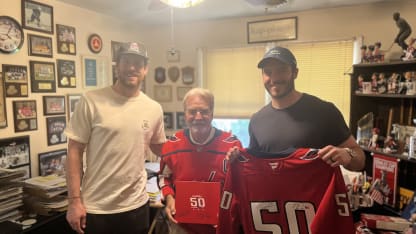
“I'll never forget the first regular season game we played in ‘74, we tied the Los Angeles Kings, one to one, and I thought after that game, ‘You know, this team isn't that bad,’” Fell recalled. “‘We tied the Kings, hey, we're going to be okay.’ I figured we'd be maybe .500. Well, we had eight total victories and lost or tied the other games, and the one road game that they won was several months into the season.
“The players had a sense of humor and when they won that game, in the dressing room, they picked up a garbage can and carried it around and pretended it was a Stanley Cup.”
John Sherlock’s first season highlights include the team’s first road win and the last game of the 1974 season.
“The only road win of the season (out in SF) was a good one,” Sherlock wrote. “The last game of that year was also fun, an 8-4 victory over the Pens with Stan Gilbertson scoring four goals.”
Although they weren’t exactly competitive, Debby Orsak didn’t care. She remembers being infatuated by the players, especially Garnet ‘Ace’ Bailey.
“I was nine when they started, and as a little girl, to me, hockey players were just so cool,” said Orsak, whose parents Jim and Sharon Cagley are original season ticket members. “We’d stay for Al Koken’s little thing at the end, because he would interview players, and then we would walk out.”
Steve Freedman also has fond memories of attending games with his father despite the team’s record. The two caught pucks – one in November of ‘74 and the other in December of ‘74 – that Freedman still has fifty years later.
Despite the tough scene on the ice, a sense of camaraderie was created in the stands among fans. George Henschel became a member, and eventually the president of, the official Capitals’ fan club. The fan club table was a mainstay on the concourse of the Capital Centre, organizing events between players and fans, as well as watch parties.
“There were a couple of road trips that first year which were fun,” Henschel said. “And when you visit a city without really any expectations of winning, you pretty much, you know, misery loves company, and so we bonded that way.”
Like Henschel, Fell also took part in fan club events and enjoyed the accessibility it gave him not only to the players, but also members of the front office and ownership. He recalls an interaction with Pollin at one of the dinners and the lasting impression it had on him.
“At a fan club dinner around 1978, I met Abe Pollin, and I thanked him for the seats that I had, and I told him that I wrote him a letter and specified them, and he said, ‘Oh my God. You're the one who did that? We had to give you those seats. Nobody else specified. Where are you from?’ I said, ‘Buffalo,’ and at that time, they had the Buffalo Sabres. He said, ‘I knew it. I knew you came from an NHL city to know enough to say anything like that,’ and so he acknowledged, it's funny. He remembered the letter. I guess he didn't get any other letters like that.”
Despite the loyalty of Caps fans, the team wasn’t performing well both on the ice and financially. As team historian Mike Vogel writes, “The team owned a cumulative 163-375-102 record - an average of just over 20 wins a season - and it had lost a reported $20 million over those eight seasons. Pollin, who worked tirelessly to get the franchise for Washington a decade earlier, had grown weary of the financial losses, the lack of success and the lack of progress his team had shown to that point, and he was looking for change. The change Pollin was seeking was any that would stop his wallet from bleeding profusely.”
Things came to a head in the summer of 1982 when Pollin asked that four requirements be met: (1) the first 10 games of the Capitals’ regular season sell out, (2) at least 7,500 season tickets be sold, (3) for Prince George’s County to reduce the tax on Capitals’ tickets from 10 percent to one half of one percent and (4) to reduce the rent the team paid to use the building. Pollin gave 30 days for his demands to be met, or he would sell the team.
“I got really worried because I had season tickets; I go to every game, and if I don't go to the game, at least, my sons go, or I give the tickets away, or whatever, so I couldn't believe it,” Fell said.
Because Pollin owned the Capitals Centre, reducing rent was the easiest of the four demands to meet. The other three demands were tougher to meet, so to reach Pollin’s desired numbers, Capitals fans banded together to create the ‘Save the Caps’ campaign to keep hockey in D.C.
Through grassroots efforts, Save the Caps worked hard over the summer of 1982 to meet Pollin’s requirements. Fans such as Steve Mehlman, Larry White, Steve and Sybil (Hindin) Gearhart, among others, were instrumental in the campaign. Mehlman personally attended a court hearing in front of the Prince George’s County Council to ensure the tax on tickets was lowered.
An article in The Washington Post entitled, ‘Save the Caps’ Picks Up Steam As Time for Rescue Runs Short,” credits White with creating and distributing fliers around the city to drum up support for the team. The same article mentions the Gearhart’s contributions and running ads in the paper with their home phone number to take pledges for Capitals’ tickets.
When the demand got too large for their personal phone, they expanded to create a phone bank of 21 telephone operators that was run out of a conference room at the Capital Centre.
Sharon remembers participating in the ‘Save the Caps’ campaign by purchasing more Caps tickets to help hit Pollin’s requirement of Capital Centre attendance.
“We went from four to six tickets,” she said. “We also bought Bullets tickets, even though we never went to a game.”
Henschel recalls one of the most successful ‘Save the Caps’ ventures -- an on-air telethon hosted by legendary sportscaster George Michael selling Capitals tickets.
“I remember there was almost like a telethon that they had where they were trying to get people to donate money,” Henschel said. “Somewhere, I still have my Save the Caps T-shirt from those days.”
In the end, the ‘Save the Caps’ campaign was successful thanks to the hard work and dedication of fans. As the years went on, the Capitals began to gain footing as a contender in the league. Freedman saw things start to turn in the right direction when David Poile was appointed general manager.
“When he made the trade to get Rod Langway and other people and we made the playoffs, that made going to the games more enjoyable,” Freedman said. “They had these runs of 10-year or 15-year increments and going to the games was more enjoyable when you knew the team was more competitive.”
“I always loved the way Mike Gartner and Peter Bondra played, but my other favorite was really Rod Langway, not only because of his playing ability, but because his acquisition totally changed the trajectory of the franchise,” Alterman added. “Instead of being a bunch of lovable losers, the Langway trade made the team really competitive.”
The Capitals made the playoffs for the first time that 1982-83 season, kicking off a 13-year playoff qualification run.
In 1987, Dave Widner attended Game 7 of the Stanley Cup playoffs between the Capitals and the New York Islanders at the Capital Centre. Now known as the Easter Epic game, the April 18 matchup went to four overtime periods and into the early hours of April 19 before Islanders’ center Pat LaFontaine netted a slapshot over the glove side of netminder Bob Mason.
“The four-overtime Easter Epic game against the Islanders on April 19, 1987, is something my family still talks about. It was such an exciting night. We had friends in town, and my friend Jerry and I went to the game. Jerry wasn’t much of a hockey fan, so after one overtime he said he’d had enough hockey for one evening. I told him there was no way I was leaving. So, I gave him my keys and told him I’d catch a ride home with someone else. I stuck it out until till 2 a.m. when it ended. Bummer we didn’t win that one, but it was still thrilling.”
The Capitals were a consistent playoff team and by the 1990s, nobody wanted to miss a game, especially not Widner.
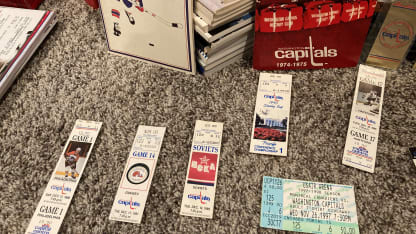
When he was deployed to Iraq for Operation Desert Storm from November 1990 to May 1991, one of Widner’s main concerns was what he would do with his Capitals’ season tickets. It was important to Widner that he held onto them, so his best friend and ticket partner took over management of his tickets.
Widner didn’t want to be left in the dark about how the team was doing, so his family found a way to keep him in the loop.
“My family would record the games from the radio on cassettes and send them to me so I could listen to them,” Widner wrote via his daughter, Sarah Hess. “I got to go to some games in October 1990 which was nice – I’ve never missed a season.”
When the first of the Peters’ three children went to college in 1990, the family made it a tradition to reunite for the Capitals’ annual Friday after Thanksgiving game.
“Once our children were away from home, Frank's office was downtown, and he would come all the way back out here to pick up any friend's child who was still in school, and take them downtown for a hockey game,” Pattie said. “Frank didn’t want the tickets go to waste and wanted somebody to enjoy them.”
When Alex Ovechkin arrived to town in 2005, no Capitals tickets went to waste. Every season ticket member wanted to watch the No. 1 overall pick with high expectations for what he could bring to Washington.
Relatively early in Ovechkin’s tenure, Orsak and her then-six-year-old were at MedStar Capitals Iceplex browsing the team store when they ran into Ovechkin there. Despite Orsak pleading with her son to leave the Russian star alone, Ovechkin instead knelt down to acknowledge him and share a few words.
“I mean, that was so meaningful, so good,” Orsak recalled. “It took so little of his time to do that, but it meant the world to my son, and I believe he's genuine. He really has a soft spot for kids.”
Fells’ original seats in Capital One Arena (Section 101, Row I, Seats 1 and 2) happened to be right across from Ovechkin’s mom.
“Every time Ovi scored, I would raise my hand and give her a high five,” Fell recalled. “She would smile when I did it. Now, she didn't speak much English, right? So I didn't hold any conversations with her, but it was fun.”
When Ovechkin turned 21 in September of 2006, Widner and his daughter Sarah celebrated the milestone at the now-defunct RnR Lounge & Bar adjacent to Capital One Arena. The birthday party, hosted by the Capitals, allowed season ticket members to celebrate with the Great 8 on his special day.
“Sarah and I have gotten to experience so much together,” Widner wrote. “We went to Ovi’s 21st birthday party sponsored by the Caps. It was immediately following a game, and it was so much fun.”
In the 20 years he has been a part of the Washington Capitals organization, season ticket members have had a front-row seat to many of Ovechkin’s milestones. Sharon remembers when Ovechkin notched his 500th career goal on Jan. 10, 2016, against the Ottawa Senators in a game the Caps would go on to win dominantly, 7-1.
“Having been there at games when Alex has broken certain records, like goals, like 500 goals, it was insane,” Sharon said. “And then we go down to the to the club, that's when it was a big celebration and everybody's just all happy. I saved those tickets.”
Just a year and change prior in 2015, Ovechkin scored a goal and assisted the game-winner as Widner and his family braved the cold to watch the Capitals play in the seventh edition of the NHL Winter Classic at Nationals Park. They cheered as the Capitals defeated the Chicago Blackhawks 3-2, after right winger Troy Brouwer scored the game-winning goal with less than 13 seconds left in regulation
“The 2015 Winter Classic at Nats Park was phenomenal. A bunch of us went together – my nephews who are huge Caps fans, my daughter, wife, and a family friend. It was so awesome to be outside, even though it was frigid and there were delays in starting the game, and experience hockey in its original element. Such a fabulous experience.”
It marked the first time in Winter Classic history that a home team won in regulation, and Peters and his son, Charles, saw it live and in person.
“I remember that Charles, our older one, took Frank to a Winter Classic,” Pattie said. “It was bitter cold weather; I mean bitter cold. And they went and they sat outside for that whole damn thing.”
With all eyes on Ovi as he inches closer to breaking Wayne Gretzky’s all-time goal record in the Gr8 Chase, Alterman is proud of the “new standard” the Captain has set for not only the team, but the entirety of the League.
“Whether or not he breaks Gretzky’s goal record, he is, in my opinion, the best pure goal scorer of all time,” Alterman wrote.
“And for him to break that record, I hope it's at home,” Sharon added. “I don't really care if it's at home or not, but it would be amazing if it was.”
The Gr8 Chase aside, the biggest accomplishment for Ovi, the Capitals and original season ticket members came nearly seven years ago, when the Capitals started their magical 2018 playoff run that culminated in winning the Stanley Cup.
“When they came back against Columbus and of course, beat the demons of the Penguins, you feel like you have an anvil taken off your shoulder, and I think that made the team feel that they could compete,” Freedman said. “Sure enough, they were fortunate. You have to be good to be lucky, and lucky to be good. And that kind of was what happened that year. They took momentum and they used it to their advantage, and they added talent, and the team finally played to their expectations.”
2018 was different, however, and the Capitals were able to get it done on the road. Every Caps’ fan remembers where they were when the clock struck zero to end Game 5 of the Stanley Cup Final in Las Vegas, marking the first championship in franchise history.
Freedman never watches road games live and kept that tradition alive for the playoff run. He didn’t find out the Caps would be bringing the Cup back to D.C. until 1 a.m. the following morning. “I had no idea whether they had won or they had lost. My way of doing it. I watched it on TV like most people, and you know, I jumped through the roof.”
Fell and his family watched Game 5 at an event for season ticket holders at Capital One Arena. His middle son, Brandon, however, was able to get tickets to the game and attended in Las Vegas. Brandon got to kiss the Stanley Cup when it came to the W rooftop.
“The game was great, but you know the one game I remember the most was when Kuznetsov scored the winning goal in overtime against Pittsburgh. When we got over that hump, I just had the feeling that we were going to win.”
To celebrate the Capitals’ Stanley Cup Final win and their support over the years, original season ticket members and their families were invited participate in the championship parade by riding in a float down Constitution Avenue.
“I couldn't believe how many people there were, it was a sea of red,” Fell said of riding in the parade with his wife. “It was a nice day in June, and I just couldn't get over the number of people. There had to be 100,000 people out there for that parade.”
“Seeing that parade and seeing the DMV, that was amazing,” Freedman added. “For Leonsis to do that for the original season ticket holders, it shows that he cared enough about the people who supported the team from the beginning, and when we got to the podium, he had seats right down in front for us under a sign that said, ‘Original Season Ticket Holders.’ We saw everything. That was truly a glorious experience, one that I will never forget.”
“Everybody was in such a good mood and just talking to all the people there, then riding on the float,” Orsak said after relishing the win with her husband and oldest son by her side. “I saw my daughter in the crowd, and people were just so excited. It was such a happy time, and then even when we stopped and we're watching everyone speaking, the atmosphere.”
Orsak even made it on TV, and her friends took pictures of her as she came onto their screens.
Aside from the 2018 Stanley Cup championship and the enjoyment that comes from attending games, one of the most rewarding experiences for original season ticket members is seeing their fandom being passed down to younger generations.
“My first daughter went to her first game when she was about a month old, so it's pretty much in the blood,” Henschel said, mentioning his younger daughter, Becca, writes for an online Capitals’ fan blog. “I would take them to the games as they were growing up and they're both big fans. My grandkids are big fans. It just runs in the family now.”
Since taking his then four-year-old daughter to her first game in 1974 against the Kansas City Scouts, Alterman’s daughter has been hooked on the experience. It still holds as one of Alterman’s favorite memories from the first season of hockey in D.C., and 50 years later, she and her father attend as many games as they can together.
“Now almost 54 and a fifth-grade teacher in Fairfax County, she’s still my partner in attending games,” Alterman wrote. “She grades papers in between periods!”
In addition to designating his tickets to the son of his longtime friend, Ed Demers, upon his passing, Freedman has also donated a large quantity of Capitals’ memorabilia to the Martin Luther King Jr. Memorial Library steps away from Capital One Arena. Freedman’s collection is periodically on display for Capitals’ fans to enjoy.
“When I moved three-and-a-half years ago, I didn't want to, but I had to downsize,” Freedman said. “Everything I collected over my 70 years of life, I donated. My family was in the retail liquor business in Washington and because of that, back in the day, you’d get all these cardboard posters of schedules and different things for all the sports, which I donated.”
Freedman’s commitment to the team since the start is a common trait among all original season ticket members; Sherlock’s involvement with the Capitals is part of the reason he coaches hockey for two separate youth teams -- the Reston Raisers (30 years) and McLean High School (17 years). For their dedication to the Capitals, season ticket members were treated to trips to celebrate the team’s anniversaries over the years.
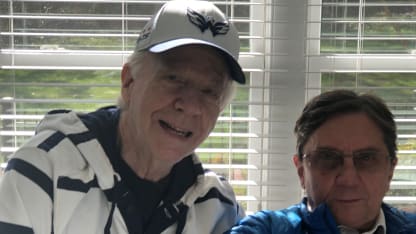
“I absolutely loved the trips that the Caps sponsored,” Widner wrote. “I went to Canada three times in the ‘90s with my best friend Jim, and on two of the trips, we traveled with the team. For the 40th Anniversary, I went to Nashville with my daughter, and for the 45th Anniversary, I went to Florida with my wife. Those trips made us feel like we were really a part of the organization in a small way.”
In keeping with tradition, the Capitals treated season ticket members to a trip to attend the team’s Oct. 26 game against the Tampa Bay Lightning in Florida for the 50th Anniversary. Additionally, ahead of the Oct. 12 season opener, select original season ticket members were surprised at their homes by current players; Fell was greeted at his front door by left-wing Pierre-Luc Dubois and defenseman Matt Roy.
Original season ticket members were also invited to Capital One Arena to watch practice and were surprised by Ovechkin, Tom Wilson and John Carlson at a post-practice luncheon.
At the halfway point of the 50th Anniversary season, the Capitals have achieved a milestone 27 wins in 41 games which ties the franchise’s second-highest win total through the first half of an 82-game season. They matched this milestone in the 2016-17 and 2008-09 seasons, with the record of 31 wins set in the 2015-16 season.
As this milestone season is well underway, moments like the Langway trade and ‘Save the Caps,’ or even Ovechkin’s first season, seem like distant memories. Original season tickets members, however, remember them like they happened yesterday and feel the reverberations of those moments in Caps’ history to reflect on how they impact where the franchise stands today.
“Having lived through the ‘Save The Caps’ campaign, reaching 50 years is a remarkable accomplishment,” Fell said.
From winning just eight games in 1974, to hoisting the Stanley Cup in 2018 and now celebrating the historic milestone of 50 years as a hockey club, the Washington Capitals would not be who they are without the original season ticket members behind them.
“I’m so proud to be a small part of this historic moment,” Widner wrote. “It’s incredible. There was a period where I didn’t know that we’d even keep the team, let alone see a Stanley Cup champions banner in our rafters.”

